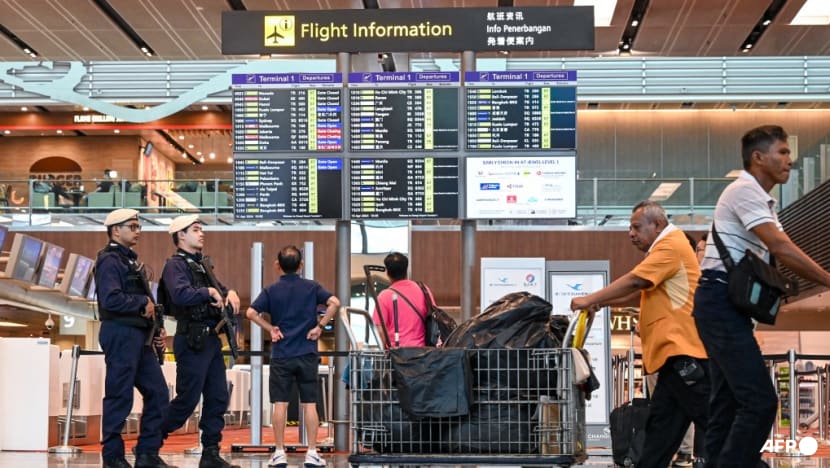CNA Explains: Why must travellers declare S$20,000 cash when entering or leaving Singapore?
Such declarations are also mandatory in other countries.


This audio is generated by an AI tool.
SINGAPORE: Ten people were recently nabbed at Changi Airport for failing to declare that they were bringing in over S$20,000 (US$14,720) in cash into Singapore.
Since May, all travellers have had to make such declarations online and within 72 hours of arriving at or departing Singapore’s checkpoints.
Why the need to declare large amounts of cash?
One expert pointed to the "anonymity" offered by cash and the "obvious appeal" for those engaged in illegal activities.
“The larger the sum of cash involved, objectively the more suspicious it is," said Associate Professor Sandra Booysen, director of the Centre for Banking and Finance Law at the National University of Singapore’s law faculty.
"We have more efficient and safer ways nowadays of keeping money and making payment.”
Associate Professor Razwana Begum Abdul Rahim, head of the public safety and security programme at the Singapore University of Social Sciences, told CNA that declarations help authorities track suspicious money flows and ensure that the funds are not being used for unlawful purposes.
These include money laundering, terrorism financing, fraud and tax evasion.
Mr Rajan Supramaniam, senior criminal lawyer at Regent Law, gave an example of a case he handled some years ago, where a female client had received over S$100,000 as part of drug transactions.
The money had been transferred from an account in Kuala Lumpur to her in Singapore. She withdrew the sum and made plans to head to Johor Bahru and hand it over to someone there.
She was eventually charged with money laundering and jailed.
Why the S$20,000 limit?
It's about striking a balance between effectiveness and intrusiveness, Assoc Prof Booysen explained.
“The level can’t be too high as illicit purposes are more likely to go undetected," she said.
"Nor can it be too low as the extent of disclosure will be both overwhelming and unwarranted, since the use of cash is unremarkable for small transactions."
Calling the S$20,000 amount reasonable, Mr Rajan said: “In some borderline cases, the authorities may issue a warning. This would require a valid explanation, such as for medical reasons like payment at private hospitals, or a family emergency. They have to be able to give the evidence.”
Some other possibly "legitimate" reasons cited by the experts included gifts, business transactions, education costs or payments for large purchases.
What happens if you don't declare?
Regardless, travellers who fail to fully and accurately declare over S$20,000 in cash or bearable negotiable instruments – such as traveller’s cheques, money orders and postal orders – can be jailed for up to three years, fined up to S$50,000 or both.
“As the declaration has to be done online within a 72-hour window, this gives them really no excuse not to do it,” noted Mr Rajan. “They cannot, for instance, claim they do not know they are carrying that amount of cash.”
The lawyer of 25 years previously worked as a senior prison officer, where he often came across inmates sentenced for travelling with large amounts of undeclared cash.
“In some cases, they were more explicit in trying to evade detection – hiding the cash in the dashboard and other parts of the car, or even in their body orifices,” he shared.
Is this unique to Singapore?
No. Such declarations are also mandatory in other countries.
Travellers entering or departing Australia need to declare if they're carrying cash amounts beyond A$10,000 (S$9,052).
In the United States, you have to declare if you're carrying more than US$10,000 (S$13,548) in cash.
Countries in the European Union - such as Germany, Spain, Italy and France - require travellers to declare if they're carrying more than 10,000 euros (S$14,577).
There's a limit of £10,000 (S$17,172) you can bring into or out of the United Kingdom without needing to declare.
And in the United Arab Emirates, which includes Dubai and Abu Dhabi, the limit is 60,000 dirham (S$22,130).

















